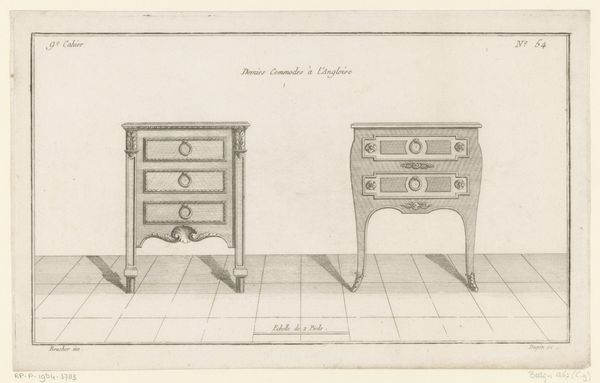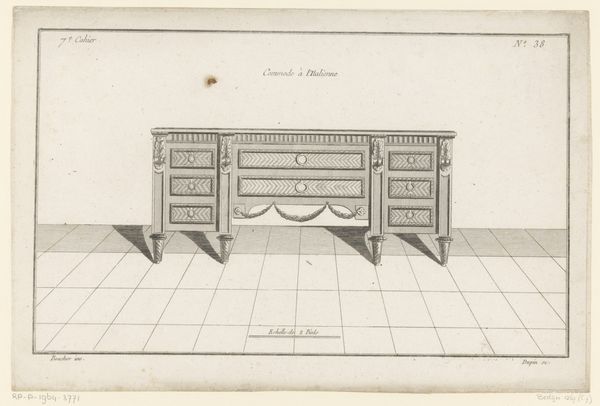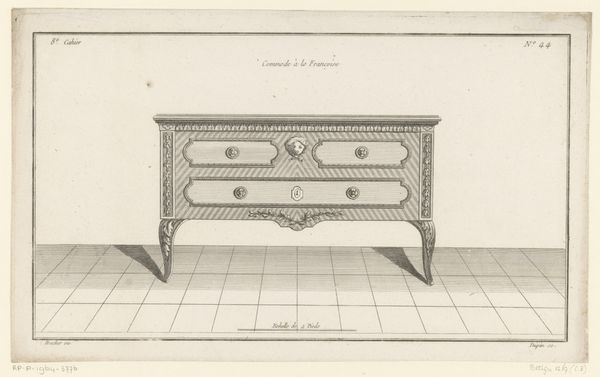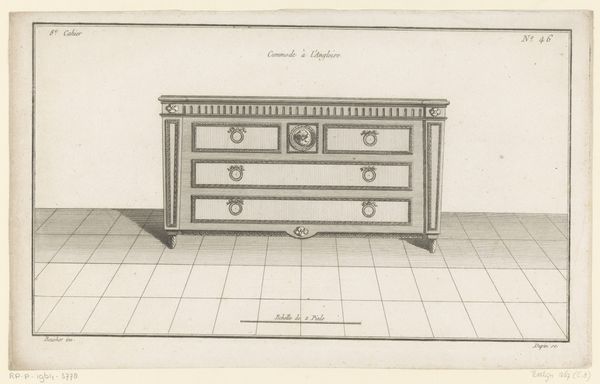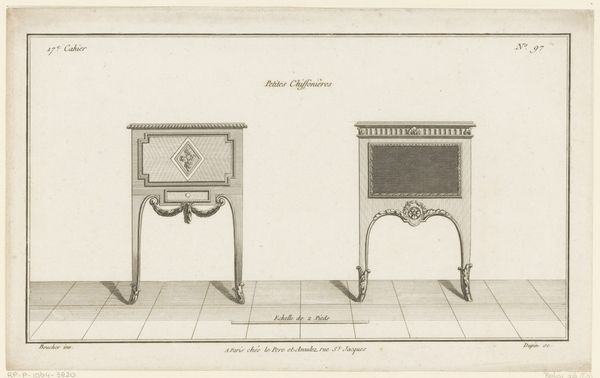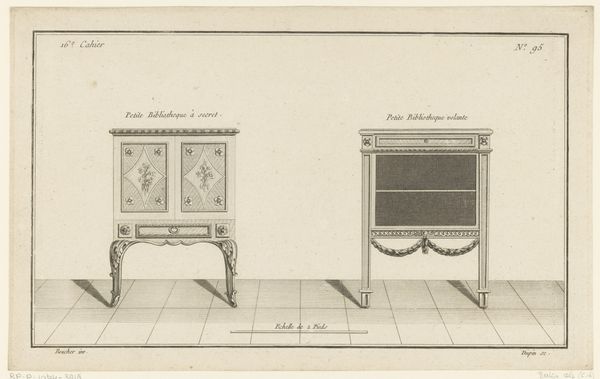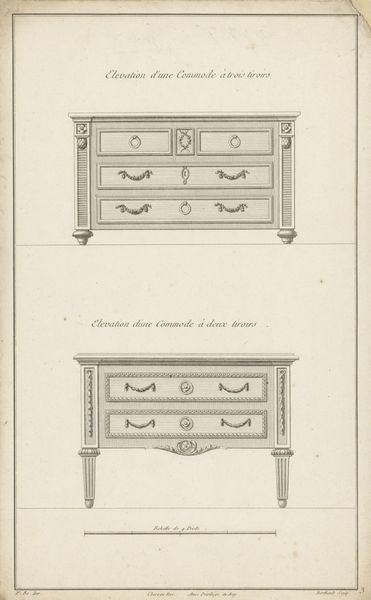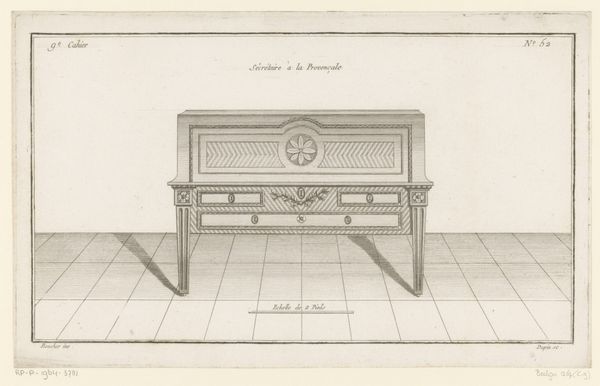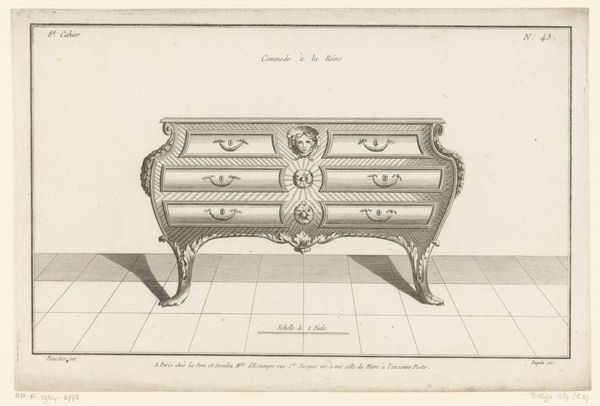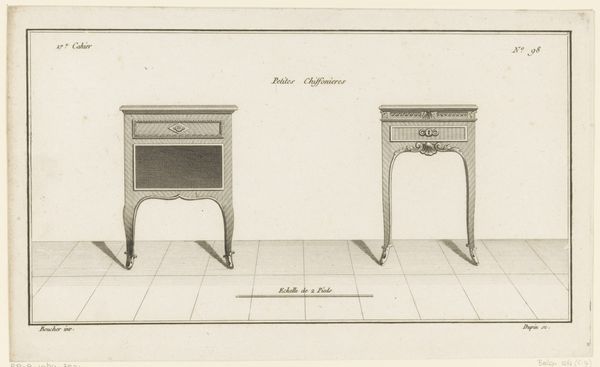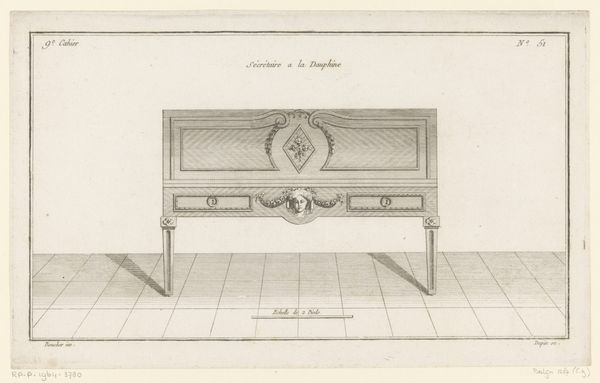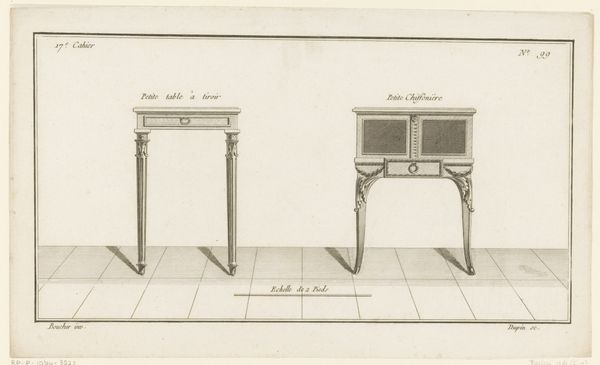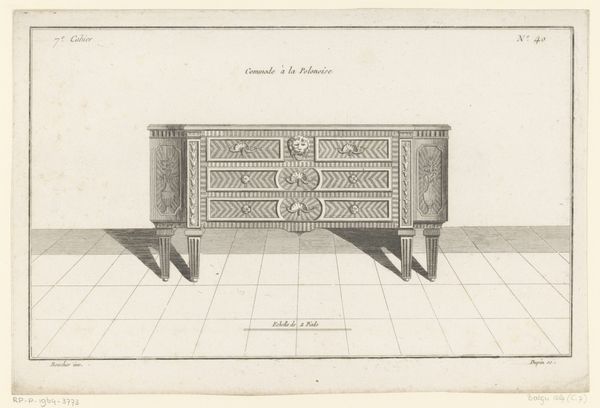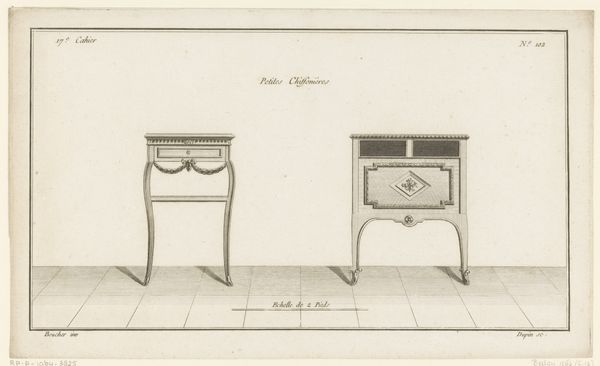
drawing, print, paper, pen, engraving
#
drawing
#
neoclacissism
# print
#
paper
#
form
#
line
#
pen
#
academic-art
#
decorative-art
#
engraving
Dimensions: height 197 mm, width 322 mm
Copyright: Rijks Museum: Open Domain
Editor: So, this is "Twee commodes," made sometime between 1772 and 1779 by Nicolas Dupin. It’s a print, a pen drawing in engraving on paper, housed in the Rijksmuseum. What strikes me immediately is the precision, the clean lines. But beyond their function, what’s their deeper significance? Curator: Observe how these commodes, these chests, function as more than mere storage. Their meticulously rendered Neoclassical details speak of a specific yearning: a reaching back to the perceived order and virtue of antiquity. Look closely—do you notice any repeating shapes? Editor: Well, I see circular pulls and decorative elements, also rectangular forms throughout, plus diamond shapes... Curator: Precisely! Circular motifs often denote cyclical time, eternity; rectangles imply stability, order. Diamonds hint at potential and the multifaceted nature of being. Even the seemingly simple act of organizing space within these forms speaks to control, reason prevailing over chaos, something particularly resonant during the Enlightenment. But do you think everyone understood them this way? Editor: I suppose people saw them as the fashionable thing at the time... status symbols, perhaps? Curator: Indeed. While conveying aspirations of reason and order to some, to others, these objects signalled affluence and social standing. Objects, like words, can have different connotations for different social groups and different historical moments. What does that consideration suggest to you? Editor: It really makes you consider the various layers of meaning embedded in even the most functional-seeming objects, doesn't it? I now recognize the furniture not just for its form, but for its ability to convey historical and societal context.
Comments
No comments
Be the first to comment and join the conversation on the ultimate creative platform.
